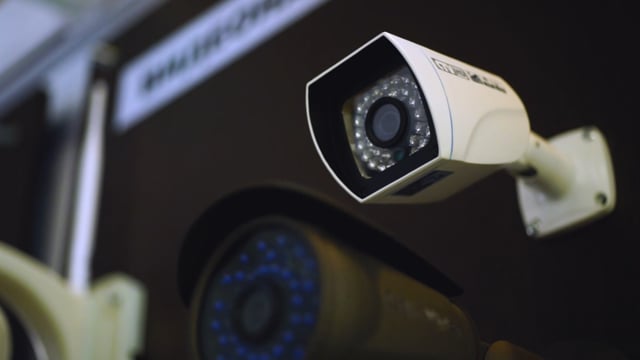
 03 July 2023
03 July 2023


In today’s world, ensuring secure and uninterrupted broadcasting in both individual and corporate environments has become essential. IPTV and centralized satellite systems play a significant role in digital broadcasting preferences. In this article, we cover everything from IPTV installation and how it works to its features and advantages. Specializing in IPTV and centralized satellite systems, Atlastek Security Technologies enhances user experience by delivering seamless and high-quality broadcasting.
IPTV (Internet Protocol Television) is a system that transmits television signals to devices via the internet, unlike traditional broadcasting. Broadcasts are delivered to viewers over a network infrastructure in the form of data packets.
To access IPTV services, the first step is to purchase a licensed subscription from an IPTV service provider. Once the subscription is purchased, the connection details provided by the provider (usually an M3U file or Xtream Codes) are entered into the IPTV application, and the content stream begins. This process does not require technical expertise and can be easily completed thanks to user-friendly interfaces. Atlastek Security Systems also integrates this infrastructure with security camera systems to provide centralized monitoring solutions.
IPTV systems are equipped with features that make the modern television experience more flexible and enriched. The most common features include:
Real-time live broadcast support
Video on Demand (VoD) content
Pause, rewind, and fast-forward options
Smart interface and category filtering
HD and 4K resolution support
Compatibility with mobile devices
Global channel options and multilingual support
Thanks to continuously updated content libraries, IPTV offers a much richer experience than traditional broadcasting. With the expansion of interactive options, IPTV features are becoming increasingly diverse.
IPTV systems host content on central servers and deliver broadcast streams over the internet upon user request. Using internet protocol, broadcasts are transmitted to devices as data packets, minimizing freezing or interruptions.
After installation, users simply open the IPTV application on their devices and enter the provider’s details. Once the stream is activated, the system automatically loads the content list and offers channel options. This structure allows IPTV to be used not only on televisions but also on computers, tablets, and mobile devices.
The IPTV installation process is simple and can be completed within minutes. The steps are as follows:
Purchase a subscription from a reliable IPTV provider.
Obtain the connection link or M3U file provided by the provider.
Enter this information into an IPTV-supported device or application.
The channel list loads automatically, and viewing can begin.
Some IPTV boxes come with pre-installed configurations. For mobile devices and smart TVs, compatible applications can be downloaded via Google Play Store or App Store. The most important requirement for IPTV installation is a stable internet connection with sufficient speed. In home or office setups, no additional technical support is required; the system works instantly after installation.
Compared to traditional broadcasting systems, IPTV offers numerous advantages. Users enjoy a more flexible and personalized viewing experience, such as:
Access from anywhere with a stable internet connection
Cost savings without satellite or cable infrastructure
Pause and replay live broadcasts
Personalized profiles and content recommendations
Upgradable infrastructure and technical support benefits
Smooth, uninterrupted streaming when used with high-bandwidth connections
No. The installation process is very simple—just enter the connection details provided by the service provider into the device.
Yes. At least 10 Mbps is recommended for HD streaming, and over 25 Mbps is required for 4K broadcasts.
The legality of IPTV services depends on content licensing. Legal IPTV providers are licensed, paid platforms. Free or unauthorized services that provide unlicensed content are illegal.
Your personal data, as the data controller, is managed by Company Name (Atlastek Security Technologies) operating the website www.atlastek.net , with the primary principle of protecting the privacy of its visitors. This Cookie Usage Policy (“KVKK”) explains to all website visitors and users which types of cookies are used and under what conditions.
Cookies are small text files stored on your device or network server by the websites you visit via your computer or mobile device.
Cookies are generally used to provide you with a personalized experience while using the website you visit, to improve the services offered, and to enhance your overall experience. They can also contribute to ease of use while browsing a website. If you prefer not to use cookies, you can delete or block them through your browser settings. However, please note that this may affect your use of our website. Unless you change your cookie settings in your browser, we will assume that you accept the use of cookies on this site.
Cookies on websites collect data related to your browsing and usage preferences on the device you use to visit the site, depending on their type. This data includes information about the pages you access, the services and products you review, your preferred language, and other preferences.
The main purposes of using cookies on our website are listed below:
Session cookies ensure the proper functioning of the website during your visit. They are used to maintain the security and continuity of both our sites and your visit. Session cookies are temporary; they are deleted when you close your browser and are not permanent.
These cookies are used to remember your preferences and are stored on your device through your browser. Persistent cookies remain on your device even after you close your browser or restart your computer. They are kept in your browser's subfolders until deleted through your browser settings.
Some types of persistent cookies may be used to provide you with personalized recommendations based on factors such as your purpose of using the website.
Thanks to persistent cookies, when you visit our website again with the same device, it is checked whether a cookie created by our website exists on your device. If it exists, it is recognized that you have visited the site before, and the content delivered to you is determined accordingly, thereby providing you with a better service.
These are cookies necessary for the proper functioning of the website you visit. The purpose of these cookies is to provide essential services by ensuring the site operates correctly. For example, they allow you to access secure areas of the website, use its features, and navigate through it.
These cookies collect information about how the website is used, the frequency and number of visits, and show how visitors arrive at the site. The purpose of using such cookies is to improve the website’s operation, enhance performance, and determine overall trend directions. They do not contain data that can identify individual visitors. For example, they indicate the number of error messages displayed or the most visited pages.
Functional cookies remember the choices made by the visitor within the site for their next visit. The purpose of these cookies is to provide ease of use for visitors. For example, they prevent the user from having to re-enter their password on each page they visit.
They measure the effectiveness of advertisements presented to visitors and track how many times the ads are viewed. The purpose of these cookies is to provide visitors with advertisements tailored to their interests.
Similarly, they help identify visitors’ interests based on their browsing and provide relevant content. For example, they prevent the same advertisement from being shown to a visitor repeatedly within a short period.
To change your preferences regarding the use of cookies or to block or delete cookies, it is sufficient to modify your browser settings.
Many browsers offer options to control cookies, allowing you to accept or reject cookies, accept only certain types of cookies, or be notified by the browser when a website requests to store cookies on your device.
At the same time, it is also possible to delete cookies that were previously saved in your browser.
If you disable or reject cookies, you may need to set some preferences manually. Since we will not be able to recognize or link your account, some features and services on the website may not function properly. You can change your browser settings by clicking the relevant link in the table below.
The Website Privacy Policy is dated …./…./….. In the event that the entire Policy or certain articles are updated, the effective date of the Policy will be revised. The Privacy Policy is published on the Organization’s website (www.atlastek.net ) and made accessible to the relevant individuals upon request by the data subjects.
Atlastek Security Technologies Address: Mahalle Adı Sokak Adı, No: 1/A, 34444 District Name/City Name Phone: +90 216 555 55 55 E-Mail: mail@alanadi.com Website: www.atlastek.net